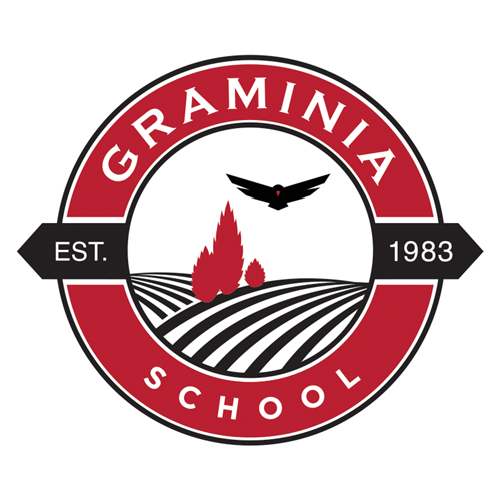AP 990: Athabasca Delta - Residential Premises
Facilities
Background
The Superintendent recognizes the necessity for appropriate and affordable residential premises, as required, for staff who are employed at the Athabasca Delta Community School [ADCS].
Living accommodations, as available, are to be provided to Athabasca Delta Community School Staff as outlined in this administrative procedure.
Definitions
For the purpose of this Administrative Procedure:
a) Landlord: shall refer to Parkland School Division as the owner, lessor and manager of the residential premises.
b) Residential Tenancy Agreement (hereinafter referred to as the Agreement): shall refer to the written contract, outlining the terms under which the employee (hereinafter referred to as the Tenant), agrees to lease a residential premise owned by the Division (hereinafter referred to as the Landlord).
c) Residential Premises: shall refer to any place occupied by an individual as a residence.
d) Tenant: shall refer to the lessee of any residential premise that is provided for by the Landlord.
Residential Premises: General Principles
1. With respect to residential premises, the Landlord adheres to all provincial legislation and, specifically, for the purposes of this Administrative Procedure, to the Residential Tenancies Act of the Province of Alberta.
2. The provision for residential premises shall be prioritized to Parkland School Division staff;
2.1. Residential premises are prioritized based on operational requirements; and
2.2. Residential premises may be provided to support a contract with an external institution, organization or paraprofessional.
3. The Director of Facilities Services shall be responsible for residential premises.
4. The Director of Facilities Services shall appoint a Residential Premises Coordinator;
4.1. Responsibilities, with respect to residential premises, may be further designated as required.
5. The Residential Premises Coordinator shall be responsible for accommodation oversight, generally including:
5.1. Tenant adherence to the Agreement;
5.2. Ensuring proper maintenance;
5.3. Ensuring proper records management with respect to residential premises; and
5.4. Providing for the assignment of residential premises as required.
6. The Residential Premises Coordinator may contract with other institutions, as necessary, to rent a residence to that institution where vacant housing is available in a community.
7. If all available residential premises are occupied, and there are additional professional staff who require accommodation, consideration will be provided to acquiring additional accommodations within the community.
The Residential Tenancy Agreement
8. Residential premises shall be leased, by the Landlord, to the employee, (hereinafter referred to as the Tenant) in accordance with the Residential Tenancies Act.
9. The Agreement shall contain the description of the complete Landlord and Tenant responsibilities for the duration of the agreement.
10. The Tenant shall read and be fully familiar with the requirements of the Agreement.
11. The Tenant shall sign the Agreement and return it to the Landlord after taking occupancy;
11.1. The Landlord shall provide a fully signed copy of the Agreement to the Tenant within thirty (30) days of receiving the signed copy from the Tenant.
12. All current and completed Agreements shall be stored electronically by the Landlord.
13. Payments shall be processed as payroll deductions in accordance with the particulars of the Agreement.
13.1. The Residential Premises Coordinator, or designate, shall ensure that the tenant completes the Housing Deduction Authorization Form.
14. In situations where staff members share a residence, each staff member shall complete an individual Agreement;
14.1. The total (gross value) of the rent and utility recovery amounts shall be detailed on each individual Agreement in equal proportion.
Residential Tenancy Agreement: Term of Residence
15. The term of the Agreement shall be clearly stated:
15.1. Generally, for contracted teachers with full-year contracts, the effective term of the Agreement shall be stated as September 1 through to June 30;
15.1.1. The actual start date may vary, by mutual-agreement, based on contractual requirements, and as deemed necessary.
15.2. Generally, for teachers on continuing contracts, the effective term of the Agreement shall be stated as September 1 through August 31;
15.3. Generally, for a teacher resigning June 30, or where a contract expires June 30, the term of the Agreement shall be completed accordingly;
15.3.1. If the teacher is offered a permanent contract of employment then the Agreement may be extended to August 31 by mutual agreement; and
15.3.2. If, during the school year, a teacher is transferred, the Agreement shall terminate as of the effective date of the transfer.
16. With respect to temporary contracts, the commencement and termination dates of the Agreement shall be the same as for the temporary contract.
17. Tenants shall provide 30 days of advance notification to the Residential Premises Coordinator, prior to any unscheduled withdrawal from the Agreement.
18. For subsequent years, the Agreement may be extended (continued) in the form of a letter;
18.1. The letter shall contain the duration of the extension, the rental rate and utility recovery amount.
Eligibility
19. The Agreement shall identify that the Landlord entered into the Agreement with the Tenant by reason of the Tenant’s employment with the Landlord;
19.1. To ensure clarity, the Agreement is conditional upon the Tenant remaining employed with the Landlord.
Residential Tenancy Agreement: Return to Premises
20. Notwithstanding Agreement continuances, the Residential Premises Coordinator may endeavour to return an employee to the same accommodation after a period of absence; however:
20.1. A return to the same accommodation may not be possible and, therefore, shall not be guaranteed; and
20.2. Employees, who continue their Agreement throughout the summer, shall maintain the same accommodation, unless arrangements are made between the Tenant and the Residential Premises Coordinator to move to an alternate accommodation.
Occupants, Guests and Multiple Tenants
21. The Tenant may not have another adult “guest” stay in the residence for longer than one (1) month without the Landlord’s prior written consent.
22. The Landlord shall not, unreasonably, withhold consent if the Tenant requests that a guest live in the residence.
23. Where there is more than one Tenant within the residence, each Tenant agrees to be jointly and severally liable for all obligations in the Agreement and each Tenant is the agent of the other(s) for all purposes;
23.1. For greater certainty, the act or default of one Tenant shall be an act or default of the others;
23.2. Notice provided to one Tenant shall be deemed to be notice to all other Tenants;
23.3. Payment of the security deposit to one Tenant is payment to all; and
23.4. Minor dependents of the Tenant or any Guests of the Tenant may also live in the residence, provided the Landlord is notified, in writing, as soon as possible of their names and ages.
Rent
24. Subject to increases in rent as may be issued under the Act, the rent for the residence shall be clearly defined in the Agreement.
25. The Total Monthly Rent shall be paid to the Landlord by way of payroll deduction from the salary of the Tenant on the last teaching Friday of each month or the twenty-fifth (25th) of the month, whichever is earlier, unless an alternative arrangement for payment is agreed to between the Landlord and the Tenant.
26. If the Premise is shared by more than one Tenant pursuant to multiple Agreements, the Landlord may deduct the Total Monthly Rent proportionately from each Tenant.
27. It is understood and agreed between the Landlord and the Tenant that where more than one Tenant occupies the residence, if one or more Tenants vacate the residence, the Total Monthly Rent remains the responsibility of any remaining Tenants;
27.1. For clarity, each Tenant is equally responsible for the Total Monthly Rent.
28. The Landlord may charge rent on a proportional basis for all days of occupancy by the Tenant.
Residential Tenancy Agreement: Security Deposits and Accommodation Inspection
29. A security deposit shall be established for all Tenants in accordance with the Agreement.
30. The Tenant authorizes the Landlord to deduct a security deposit, equal to one month’s rent, as defined in the Agreement, by way of payroll deduction as set out by the Housing Deduction Authorization Form as signed by the Tenant;
30.1. The Landlord shall pay interest on the security deposit at the prescribed rate as provided for in the Residential Tenancies Act.
31. The Landlord shall not be required to pay interest on the security deposit to the Tenant on an annual basis, but may retain and compound such interest.
32. The Landlord shall only be obliged to pay out the interest at the time that the security deposit (or such portion thereof as the Tenant is entitled to) is returned to the Tenant.
33. The Security deposit, along with the interest, shall be returned to the Tenant after the residence is vacated, provided that the residence is left in satisfactory condition.
34. If the residence is not left in satisfactory condition, the Landlord shall provide the Tenant with details of the deductions.
35. Deductions may be made from the security deposit, as allowed by the Residential Tenancies Act, for the following items:
35.1. Repair of damage to the residence caused, or permitted, by the Tenant or guests;
35.2. Cleaning required to make the residence reasonably clean;
35.3. Rent remaining owed to the Landlord; and/or
35.4. Any other liability or obligation owed by the Tenant(s) to the Landlord.
36. Security deposits may be amended at such time as the residence changes for the Tenant, and therefore in accordance with any new Agreement rate.
Residence Inspection and the Residence Inspection Report
37. A Residence Inspection Report shall capture the condition of the residence when the Tenant initially moves in to the residence, and again when they vacate, as identified in S. 19 of the Residential Tenancies Act.
38. The Residential Premises Coordinator shall ensure the proper completion of all Residence Inspection Reports.
39. Appointments for conducting the physical residence inspections are arranged as per S. 19(3) and S. 19(4) the Residential Tenancies Act.
40. Each Residence Inspection Report shall be completed within a period of time between one (1) week prior to and one (1) week after a tenant takes possession, as required by the S. 19(1) of the Residential Tenancies Act.
40.1. The Residential Premises Coordinator and the Tenant shall each sign to verify agreement with respect to the report’s contents;
40.1.1. The first copy of the completed Residence Inspection Report shall be provided to the tenant; and
40.1.2. The second copy shall be centrally filed for future use.
41. A Residence Inspection Report shall be completed again at such time as the Tenant vacates an accommodation or changes to an alternate accommodation;
41.1. The signed copy of the completed Residence Inspection Report shall be reviewed upon the Tenant’s departure, and with respect to any inspection of the residence;
41.2. The inspection of the residence shall take place within 3 weeks prior to the Tenant’s move out date and a subsequent inspection shall take place after the Tenant has vacated the residence;
41.3. Both the Tenant, and the Residential Premises Coordinator, or designate, shall sign the Residence Inspection Report;
41.4. The Residential Premises Coordinator shall determine the charge to be levied, against the security deposit, for any variation to the Residence Inspection Report as deemed necessary and appropriate; and
41.5. Should the damages exceed the security deposit, the Landlord reserves the right to take legal action to recover for damages-owing as per the Residential Tenancies Act.
42. Residence Inspection Reports shall be completed with any change of tenant.
43. Residence Inspection Reports shall be completed after any significant renovation occurs to the residence.
44. The security deposit, and related interest, shall be cleared, as required by the Residential Tenancies Act, at the conclusion of the Residential Premises Coordinator’s evaluation and any subsequent actions, as provided for within the Residence Inspection Report.
Care of the Residence
45. The Tenant shall adhere to S. 21 of the Residential Tenancies Act, with respect to the Tenant’s Covenants.
46. The Tenant is not responsible for the reasonable wear and tear of the residence or the Landlord’s goods.
47. The Tenant shall be responsible for any payments related to supplementary services; including, but not limited to:
47.1. Telephone or cellular phone fees; and/or
47.2. Supplementary Internet network access (for instance, increased transfer rates);
48. The Landlord shall supply a list of household items (the Landlord’s goods) that corresponds to the items that are included in the residence, subject to the Agreement’s Schedule “A”;
48.1. The Tenant shall be responsible for their own items, and/or any household items that are desired beyond those items supplied by the Landlord.
49. The Tenant shall take reasonable care of the residence and the Landlord’s goods at all times;
49.1. The Tenant shall keep the residence clean and shall take care of the Landlord’s goods; and
49.2. The Tenant shall report any damage or deterioration of the residence or the Landlord’s goods as soon as damage or deterioration is known by the Tenant.
50. Tenants are responsible for ensuring the safe-keeping of their possessions during any absence;
50.1. Tenants shall not leave personal property in any accommodation for which there is no Agreement in place;
50.2. The Residential Premises Coordinator shall inform the tenant of any possessions that remain after the tenant’s departure, especially with respect to the conclusion of the Agreement, to determine appropriate steps for their safe-keeping or disposal; and
50.3. The Residential Premises Coordinator will coordinate the proper sale or disposal of possessions, that are deemed to be abandoned, in accordance with S. 31 “Abandoned Goods” of the Residential Tenancies Act.
51. The Tenant shall agree not to do, or allow to be done, any noxious, noisome or offensive art, trade, business, occupation or calling in the residence.
52. The Tenant shall not keep, sell, use or handle, or dispose of any goods or things which may be objectionable, or by which the nearby or neighboring lands may be damaged.
53. The Tenant shall agree not to do, or allow anything to be done, or continued in the residence, which may be or become a nuisance or cause damage to the owners or occupiers of neighboring lands or premises, or, where applicable, other premises in the building, or which may make void or voidable any insurance upon the building or part thereof, or which may cause any increased additional premium to be payable.
54. The Tenant shall not remove any of the Landlord’s goods from the residential premises or transfer equipment and/or furnishings from other residences, residential premises or property owned by the Landlord without the prior written consent of the Landlord.
55. The Tenant shall be responsible for any cost related to the following:
55.1. Clearing of plugged toilets, sinks and/or drains;
55.2. Cleaning and replacement of the furnace filters;
55.3. Replacement of light bulbs in the residence;
55.4. Repair or replacement of doors, windows, screens and light fixtures, where the repair or replacement is required due to damage or removal by the Tenant or the Tenant’s guests;
55.5. Any other repairs and replacements that are not the responsibility of the Landlord; and
55.6. Replacement of batteries in smoke detectors and carbon monoxide detectors.
56. The Tenant shall, at all times, maintain and, upon termination or expiry of the Agreement, return the residence and the Landlord’s goods in clean, good and usable condition.
57. The Tenant shall be responsible for, and shall pay to the Landlord all costs incurred by the Landlord for:
57.1. Repair of significant damage to the residence, caused or permitted to be caused by the Tenant or the Tenant’s guests;
57.2. Cleaning required to make the residence reasonably clean after the Tenant has vacated the residence;
57.3. Rent owed to the Landlord, including outstanding payment for utility overages; and
57.4. Any other liability or obligation owed by the Tenant to the Landlord.
58. If, during the term of the Agreement, any repairs or cleaning of the residence are necessary due to the carelessness or negligence of the Tenant or the Tenant’s guests, the Landlord may provide notice, in writing, to the Tenant to rectify such conditions to the Landlord’s specifications within a reasonable time;
58.1. If the Tenant fails to rectify such conditions, the Landlord may have the necessary repair work or cleaning done and the Tenant covenants to pay to the Landlord the repair and cleaning costs on receipt of a detailed accounting of costs from the Landlord;
58.1.1. If any portion of the repair and cleaning costs are considered by the Landlord to be part of the reasonable wear and tear on the residential premises, the Landlord will not charge the Tenant for that portion.
59. The Tenant must ensure that if at any time during their tenancy they will be absent from the residence for more than forty-eight (48) consecutive hours that another individual will check on the residence daily to ensure that the residence and its contents do not incur any damages;
59.1. The individual checking on the residence shall enter the housing unit and conduct a thorough walk through to ensure the following:
59.1.1. That the heat is on and the furnace is running;
59.1.2. That the water is running both hot and cold checking multiple locations, such as: kitchen and bathroom sinks and flush toilet(s);
59.1.3. That no damage has occurred to the Residence, its contents, or the nearby grounds;
59.2. The Tenant shall advise the individual conducting the check that in the event there are any problems in the Residence, the individual is to immediately contact both the Tenant and the Landlord;
59.3. The Tenant shall provide the individual with contact information for the Landlord; and
59.4. The Tenant shall bear sole liability for any damage to the residential premises and its contents.
60. The Landlord, where responsible for maintenance under the Agreement, shall ensure a reasonably good state of repair concerning these responsibilities for the residential premises.
61. The Landlord reserves the right to complete periodic inspections of the residential premises by providing electronic notice to the Tenant at least twenty-four (24) hours in advance of an inspection.
Residential Premises: Utilities
62. The Landlord shall arrange for the provision of essential utilities, including water, sewage, garbage removal, gas/propane, electricity, and Internet access, as per S. 6 of the Agreement.
Residential Premises: Goods, Furniture and Equipment
63. The Landlord shall supply and maintain the appliances and furniture listed on Schedule “A” of the Agreement during the tenancy;
63.1. The cost of appliances and furniture shall be included in the Total Monthly Rent (“the Landlord’s goods”).
Residential Premises: Keys and Access
64. The Residential Premises Coordinator shall possess a copy of all necessary keys for the residential premises.
65. The Residential Premises Coordinator shall ensure that the Tenant has the necessary codes and/or keys required to access and/or utilize their accommodation;
65.1. Keys shall be made available in coordination with the time of the possession of the accommodation by the Tenant.
66. Where a key safe is utilized on a residential premise, the Residential Premises Coordinator or designate shall ensure the information is kept secure.
67. In the event that any keys have been lost, stolen or misplaced, the tenant agrees to reimburse the Landlord to a maximum fee of $150.00 depending on the type of lock that is required.
68. The Tenant shall be fully informed, in advance, of any requirement for third-party access to residential premise codes and/or keys.
Right of Entry
69. In accordance with the Residential Tenancies Act, the Landlord or its agent(s) shall give a minimum of twenty-four (24) hours’ notice to the Tenant prior to entering the residential premises:
69.1. To inspect the state of repair of the residential premises;
69.2. To make repairs to the residential premises;
69.3. To show the residential premises to prospective purchasers or mortgagees of the residential premises;
69.4. To show the residential premises to prospective tenants after the Landlord or Tenant has serviced notice of termination;
69.5. To take steps to control pests in the residential premises; or
69.6. To ensure that the residential premises meet the standards, in that regard, that are required under any law in force in Alberta.
70. The Tenant agrees to provide the Landlord with a telephone number for the purpose of receiving notice on entry;
70.1. The Landlord shall not release this information unless permitted under the Freedom of Information and Protection of Privacy Act.
71. The Landlord or its agent(s) shall be entitled to enter the residential premises without consent or notice if the Landlord has reasonable grounds to believe that:
71.1. An emergency requires the Landlord or agent to enter the residential premises; or
71.2. The Tenant has abandoned the residential premises.
Insurance
72. The Landlord shall maintain adequate insurance coverage, including liability coverage on the residential premises, and on the contents of the residential premises that are owned by the Landlord.
73. The Tenant shall be responsible for insurance coverage for the Tenant’s personal contents, personal belongings and personal liability;
73.1. The Tenant is not responsible for insuring the residential premises or the Landlord’s goods for physical damage; and
73.2. The Tenant shall not do, or allow, anything to be done which may result in any policy of insurance on the residential premises to become void or voidable.
Requirement to Vacate Premises
74. Institutions, paraprofessional and/or support staff members who are utilizing a residence, on a short-term basis, may be expected to vacate should the residence be necessary for long-term staff.
Temporary Accommodations
75. Where circumstances require a professional staff member to utilize temporary commercial lodging at the Landlord’s expense, while waiting for an available residence, a monthly fee of three hundred dollars ($300.00) shall be charged in the form of payroll deduction.
76. Temporary commercial lodging, at the Landlord’s expense, shall require prior approval from the Residential Premises Coordinator.
Short-Term Rental
77. Where residences are rented to other institutions, contract rental amounts shall be payable at the beginning of the month for which the rental is due.
Termination
78. The Landlord and the Tenant may terminate the Agreement in accordance with the provisions of the Residential Tenancies Act.
79. In the event of a termination of the Tenant’s employment with the Landlord or in the event that the Tenant is transferred as an employee of the Landlord, the Agreement shall be automatically terminated for the Tenant, pursuant to the Agreement at the same time as the contract of employment is terminated; however
79.1. If so requested by the Tenant, the Landlord may allow a minimum of seven (7) and up to an agreed upon time after the termination of the Tenant’s employment, for the Tenant and any guests to vacate the residential premises;
79.2. Rent shall be charged for these days on a pro-rated basis; and
79.3. For clarity, the termination of the Agreement shall not impact anyone who is a Tenant of the residential premises pursuant to a separate or different Agreement.
General
80. The Tenant shall not assign or sublet any part or all of the residential premises without first obtaining the written consent of the Landlord, and the Landlord may refuse to provide consent on reasonable grounds;
80.1. The Tenant shall provide written notice of any assignment or subletting request.
81. The Landlord shall advise the Tenant of any change in ownership of the residential premises within seven (7) days of that change.
82. The Landlord and the Tenant shall comply with all legislation, whether federal or provincial, as may be applicable, regarding health, sanitation, fire, housing, safety and all municipal codes applicable to the owner or user of a residential premise covered by the terms and conditions of the Agreement.
83. The Tenant shall follow all applicable Administrative Procedures.
83.1. Administrative Procedures may be amended from time to time by the Landlord without notice to the Tenant and are binding on the Landlord and the Tenant and form part of the Agreement to the extent the procedures are not inconsistent with the Residential Tenancies Act and the Agreement.
84. It is further agreed that the Agreement will enure to the benefit of, and be binding on, the Tenant and the Landlord, their heirs, executors, administrators, successors and permitted assigns.
85. The Landlord shall have all rights and remedies available to them under the Residential Tenancies Act.
86. The Tenant shall have all rights and remedies available to them under the Residential Tenancies Act.
87. The Agreement may be signed in two or more counterparts, each of which will be deemed to be an original and all of which will constitute one and the same instrument.
87.1. Counterparts may be delivered electronically by email or facsimile transmission and when so delivered will be deemed an original.
Approved:























